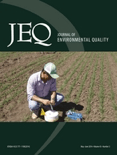
JOURNAL OF ENVIRONMENTAL QUALITY
Scope & Guideline
Advancing Sustainable Solutions for a Greener Tomorrow
Introduction
Aims and Scopes
- Soil Health and Quality Assessment:
Research dedicated to understanding the factors that influence soil health, including amendments, crop management techniques, and the impact of various agricultural practices on soil quality. - Nutrient Management and Cycling:
Studies that explore the dynamics of nutrient cycling in agroecosystems, particularly focusing on phosphorus and nitrogen management practices and their implications for environmental quality. - Water Quality and Pollution:
Investigations into the effects of agricultural practices on water quality, including runoff, erosion, and the transport of pollutants such as nitrates, phosphates, and emerging contaminants. - Impact of Agricultural Practices on Greenhouse Gas Emissions:
Research examining how different agricultural practices contribute to greenhouse gas emissions, including methane and nitrous oxide, and the development of strategies to mitigate these emissions. - Emerging Contaminants and Environmental Impacts:
Focus on the detection and management of emerging contaminants such as PFAS, microplastics, and pharmaceuticals in agricultural and natural environments.
Trending and Emerging
- Sustainable Agricultural Practices:
An increasing number of studies are focusing on sustainable practices, such as cover cropping, no-till farming, and integrated pest management, highlighting their benefits for soil health and reduced nutrient runoff. - Microplastics and Soil Health:
Research on the presence and impact of microplastics in agricultural soils is gaining traction, addressing concerns about soil and food safety. - Climate Change and Agriculture:
There is a growing emphasis on the interplay between climate change and agricultural practices, particularly how adaptations in agriculture can mitigate greenhouse gas emissions and improve resilience. - Technological Innovations in Environmental Monitoring:
Emerging research is leveraging advanced technologies such as machine learning and remote sensing to monitor environmental quality and optimize agricultural practices. - Phosphorus Recovery and Management:
Studies focusing on innovative methods for phosphorus recovery from waste streams and their implications for sustainable nutrient management are increasingly prominent.
Declining or Waning
- Traditional Soil Fertility Studies:
There has been a decrease in papers focusing solely on conventional soil fertility studies, as the field has evolved to incorporate more integrative approaches that consider environmental impacts. - Single-Crop Studies:
Research centered on the effects of single crop systems is waning as there is a growing interest in multi-cropping systems and integrated agricultural practices that promote sustainability. - Historical Contaminant Studies:
Research that solely examines historical contaminants without considering current agricultural practices and their interactions with modern environmental challenges is becoming less prevalent.
Similar Journals
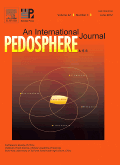
PEDOSPHERE
Bridging Disciplines to Enhance Soil UnderstandingPEDOSPHERE, published by SCIENCE PRESS, is a leading journal in the field of Soil Science, holding a prestigious position in the Q1 category as per the latest evaluations, reflecting its high impact and relevance in the domain. Established in 1996, this journal is committed to advancing our understanding of soil-related processes and their interactions with various environmental components, providing a platform for innovative and high-quality research. With an impressive rank of #13 out of 159 in the Scopus classifications for Agricultural and Biological Sciences, PEDOSPHERE reaches the 92nd percentile, indicating its significance among scholarly publications. Although the journal operates under traditional access options, it remains an essential resource for researchers, professionals, and students keen on exploring the complexities of soil dynamics and sustainability. By bridging interdisciplinary methodologies and fostering collaboration, PEDOSPHERE plays a vital role in addressing global challenges related to soil management, conservation, and ecological balance.
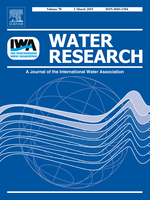
WATER RESEARCH
Advancing water science for a sustainable future.WATER RESEARCH, published by Pergamon-Elsevier Science Ltd, is a premier international journal dedicated to the advancement of knowledge in the interdisciplinary field of water science and technology. With a significant impact factor, WATER RESEARCH holds a distinguished position, consistently ranking in the top quartile (Q1) across multiple categories including Civil and Structural Engineering, Environmental Engineering, and Pollution. Established in 1967 and set to continue its legacy until at least 2024, this journal provides a vital platform for researchers and professionals to disseminate cutting-edge findings related to water sustainability, quality, and management. Although the journal follows a traditional access model, its commitment to disseminating impactful research ensures that it remains an essential resource for academia and industry alike. With a rigorous selection process, the journal includes articles that significantly contribute to the understanding and resolution of global water-related challenges, making it an invaluable asset for researchers, students, and practitioners engaged in this critical area of study.

NUTRIENT CYCLING IN AGROECOSYSTEMS
Connecting Science and Sustainability in Nutrient ManagementNUTRIENT CYCLING IN AGROECOSYSTEMS is a premier academic journal published by SPRINGER, dedicated to advancing the field of agroecosystem research. With an ISSN of 1385-1314 and an E-ISSN of 1573-0867, the journal has achieved remarkable standing, being ranked in the Q1 category for both Agronomy and Crop Science and Soil Science as of 2023. Over the years, it has emerged as an essential platform for interdisciplinary research focused on nutrient management, soil health, and sustainable agriculture practices, reflecting a growing global interest in environmental sustainability. The journal's impactful contributions are highlighted by its impressive Scopus rankings, where it stands at #68/406 and in the 83rd percentile for Agronomy and Crop Science, and #37/159 with a 77th percentile in Soil Science. Researchers, professionals, and students are invited to explore open access options for published articles, facilitating wider dissemination of knowledge in nutrient cycling and its critical implications for agroecological systems. Join the discourse by submitting your research and contributing to the ongoing conversation in this vital area of study.
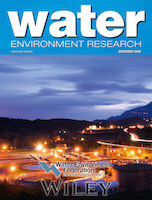
WATER ENVIRONMENT RESEARCH
Championing rigorous research for a sustainable water world.WATER ENVIRONMENT RESEARCH is a leading scholarly journal dedicated to disseminating cutting-edge research in the fields of water science and technology. Published by WILEY, this esteemed journal (ISSN: 1061-4303; E-ISSN: 1554-7531) is renowned for its rigorous peer-reviewed articles that explore critical issues related to ecological modeling, environmental chemistry, pollution, and waste management. Established in 1992 and continuing through 2024, WATER ENVIRONMENT RESEARCH has secured a notable position within its category quartiles, ranking in the Q2 tier for several disciplines, including ecological modeling and water science and technology. It is highly regarded in the Scopus database, holding a rank of #53 out of 261 journals in Environmental Science related to Water Science and Technology, positioning it in the 79th percentile. As it continues to bridge research and practice, this journal serves as an essential resource for researchers, professionals, and students striving to advance knowledge and foster sustainable solutions within the water environment sector.

Paddy and Water Environment
Innovating solutions for a sustainable water and paddy ecosystem.Paddy and Water Environment is a pivotal journal published by Springer Heidelberg, dedicated to advancing the fields of Agronomy, Environmental Engineering, and Water Science and Technology. Established in 2005, this esteemed journal focuses on the complex interactions between paddy cultivation and water management, addressing critical issues related to sustainable agriculture and environmental preservation. With an impressive performance in Scopus rankings—holding Q2 positions across multiple categories and showcasing a commendable publication impact—this journal serves as an essential resource for researchers, professionals, and students alike. Paddy and Water Environment provides insightful research articles, reviews, and case studies that contribute to the understanding of the intricate relationships between the environment and agricultural practices, promoting strategies for sustainable development. Subscribers benefit from access to a wealth of knowledge, underscoring the journal's significance in fostering scientific inquiry and innovation within its domain.
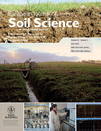
EUROPEAN JOURNAL OF SOIL SCIENCE
Pioneering Research in Soil Ecology and ManagementEUROPEAN JOURNAL OF SOIL SCIENCE, published by Wiley, stands as a leading platform in the field of soil science, recognized for its contributions to the understanding of soil ecology, management, and sustainability. With an impressive impact factor and a distinguished Q1 ranking in Soil Science, this journal has recently ranked 23rd out of 159 in its category on Scopus, placing it in the 85th percentile among its peers. Covering a wide array of topics as it converges into the future, from 1994 to 2024, the journal aims to disseminate groundbreaking research and innovative methodologies that address the pressing challenges of soil degradation and environmental sustainability in Europe and beyond. Although it is not an open access journal, the EUROPEAN JOURNAL OF SOIL SCIENCE remains a vital resource for researchers, professionals, and students seeking to deepen their understanding and explore the latest advancements in soil science.
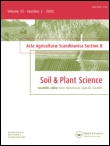
ACTA AGRICULTURAE SCANDINAVICA SECTION B-SOIL AND PLANT SCIENCE
Empowering Researchers to Shape Sustainable Agricultural PracticesACTA AGRICULTURAE SCANDINAVICA SECTION B-SOIL AND PLANT SCIENCE, published by Taylor & Francis AS, is a distinguished journal dedicated to the fields of Agronomy, Crop Science, and Soil Science. With an impressive impact factor, and categorized in Q2 for both Agronomy and Crop Science and Soil Science as of 2023, this journal is an essential resource for researchers, professionals, and students aiming to advance their understanding of soil-plant interactions and sustainable agricultural practices. Operating since 1992 and continuing through to 2024, ACTA aims to publish high-quality, peer-reviewed research that encourages the applicability of advanced scientific knowledge in real-world agricultural settings. While the journal is not open access, it remains widely accessible through institutional subscriptions, reflecting its commitment to disseminating essential findings and fostering innovation in soil and plant science worldwide. Nestled in the vibrant academic environment of Norway, ACTA AGRICULTURAE SCANDINAVICA serves as a key platform for nurturing groundbreaking research that informs sustainable agricultural policies and practices globally.
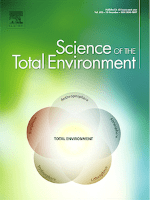
Science of The Total Environment
Advancing Environmental Knowledge for a Sustainable FutureScience of The Total Environment, an esteemed journal published by Elsevier, holds a significant position in the field of environmental science, encompassing critical areas such as Environmental Chemistry, Environmental Engineering, Pollution, and Waste Management and Disposal. With an impressive impact factor and ranked in the Q1 quartile across its categories for 2023, the journal is recognized for its high-quality research output and contribution to environmental sustainability. Operating from its base in the Netherlands, the journal has been a valuable resource since its inception in 1972, welcoming innovative studies that address complex environmental challenges. Its notable rankings—such as Rank #9 in both Environmental Sciences and Pollution—underscore its relevance and influence in the academic community. Although the journal currently does not provide an open access option, the robust findings and discussions presented within its pages continue to foster a deeper understanding of environmental issues. Science of The Total Environment is an essential platform for researchers, professionals, and students dedicated to advancing knowledge and solutions in the rapidly evolving field of environmental science.

CANADIAN JOURNAL OF SOIL SCIENCE
Empowering Soil Science for Agricultural InnovationThe Canadian Journal of Soil Science (ISSN: 0008-4271, E-ISSN: 1918-1841) is a premier publication in the field of soil science, proudly published by Canadian Science Publishing. Established in 1974, this esteemed journal aims to promote high-quality research and insights into the dynamic interactions within soil ecosystems, addressing pressing issues such as soil health, management, and sustainability. With an impressive 2023 category quartile ranking of Q2 in Soil Science and a Scopus ranking placing it in the 52nd percentile, this journal stands out as a key resource for researchers, professionals, and students alike. Although currently not open access, the journal provides valuable content that contributes to advancing the understanding of soil science, an essential discipline for agricultural innovation and environmental stewardship. As we approach its converged years through 2024, the Canadian Journal of Soil Science is poised to continue its pivotal role in disseminating impactful research and fostering a community dedicated to soil science excellence.
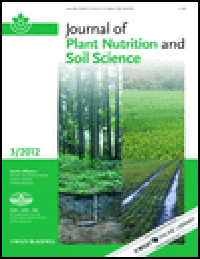
JOURNAL OF PLANT NUTRITION AND SOIL SCIENCE
Unlocking the secrets of plant nutrition and soil health.JOURNAL OF PLANT NUTRITION AND SOIL SCIENCE, published by WILEY-V C H VERLAG GMBH, stands as a premier platform in the field of agricultural and biological sciences, focusing specifically on the intricacies of plant nutrition and soil science. With an impressive impact factor and a respected Q1 category ranking in Plant Science and Q2 category ranking in Soil Science for 2023, this journal is essential for researchers and professionals seeking to advance their understanding and foster innovative practices in sustainable agriculture. The journal’s open access options ensure a broad dissemination of knowledge, appealing to a global audience and facilitating collaborative research efforts. Embracing a broad scope that extends from foundational science to cutting-edge research developments in soil health and nutrient management, the journal serves as a critical resource for both emerging scholars and established experts, reinforcing its pivotal role in addressing the challenges of food security and environmental sustainability. With years of convergence from 1996 to 2024, it remains committed to excellence in scholarly communication, providing a vital forum for the sharing of valuable insights and advancements in the field.